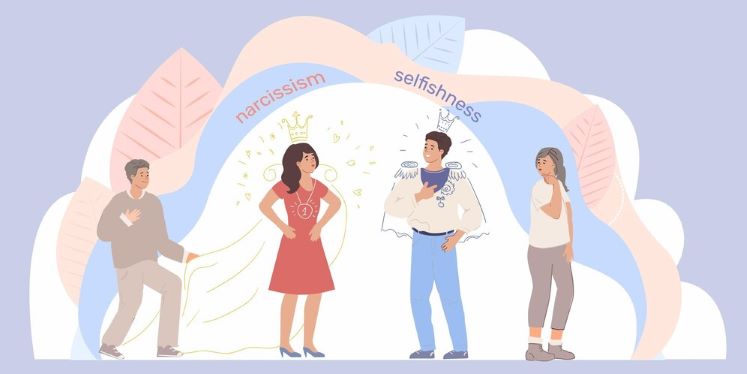Narcissism within a relationship can be a complex and challenging issue. Narcissism is a personality disorder characterized by a lack of empathy, a preoccupation with one’s own needs and desires, and a heightened sense of self-worth. This can lead to various problems in a relationship. Here are some characteristics of narcissism within a relationship and how to deal with it:
Sense of Superiority: A narcissistic partner may see themselves as superior and look down on others, including their partner.
Lack of Empathy: They often struggle to understand or consider their partner’s feelings and needs.
Need for Admiration: Narcissists have a constant need for admiration and validation from others, and they may expect their partner to constantly praise them.
Manipulative Behavior: They can employ manipulative tactics to get their way or control their partner.
Controlling Nature: A narcissistic partner may feel the need to exert control over all aspects of the relationship, leading to an imbalanced power dynamic.
Lack of Accountability: They tend to avoid taking responsibility for any issues in the relationship and may blame others.
Jealousy and Possessiveness: Jealousy and excessive possessiveness can occur, with the narcissistic partner attempting to control their partner’s movements and interactions.
Lack of Compromise: They may struggle with compromising and expect their partner to always cater to their wishes.
Idealization and Devaluation Cycle: Narcissists may alternately idealize and devalue their partner, leading to emotional turbulence in the relationship.
Isolation: They may try to isolate their partner from friends and family to maintain control.
Dealing with narcissism within a relationship can be challenging. If you find yourself in a relationship with a narcissistic partner, it’s important to prioritize your own safety and well-being. Consider seeking professional help, such as counseling or therapy, to understand the situation and develop strategies for coping with it. It may also be necessary to end the relationship if it is unhealthy or harmful to you. Seek support from trusted friends, family members, or professionals to assist you in making the right decisions for your well-being.



